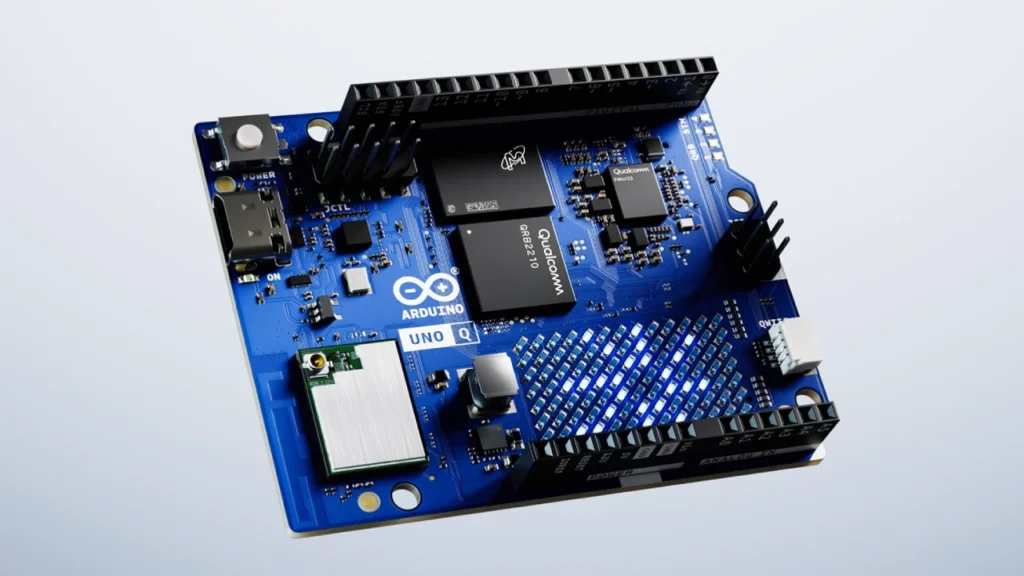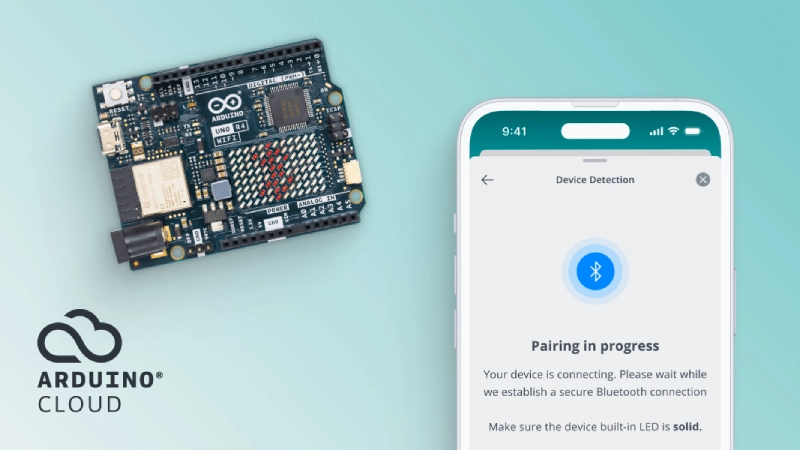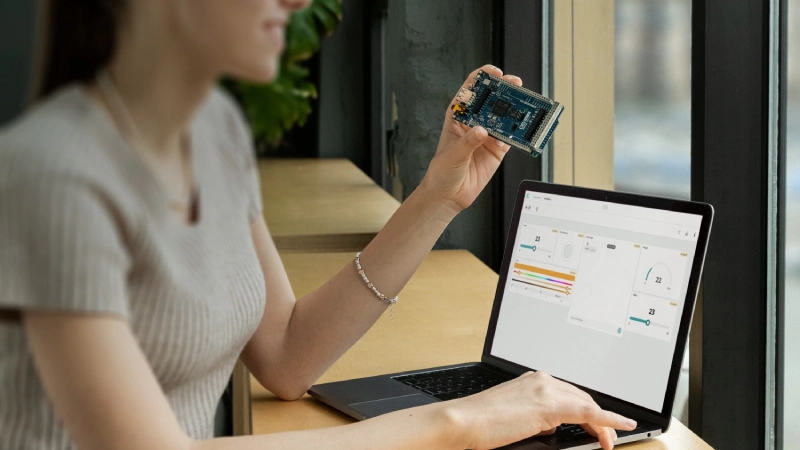Highlights
- Qualcomm acquires Arduino, empowering 33M developers globally.
- The Arduino UNO Q debuts as the first dual-brain board featuring the Qualcomm Dragonwing processor.
- UNO Q blends Linux, Debian, and a real-time microcontroller for AI-enabled local processing.
- Arduino App Lab streamlines coding, testing, and deployment of AI and IoT projects.
- Integration with Edge Impulse enables real-world AI model training in a few clicks.
- Collaboration combines open-source innovation with Qualcomm’s advanced AI and edge computing power.
The intersection of technology giants and open-source innovators can redefine the relationship between creativity and computation. This week, Qualcomm Technologies, Inc. announced the acquisition of Arduino, the open-source hardware leader that spurred the global maker movement. The acquisition represents a strategic initiative for Qualcomm to rapidly expand access to its powerful AI and edge computing technologies, while providing Arduino’s community of 33 million with a new platform for innovation.
UNO Q: Arduino’s first dual-brain board
The core of this partnership lies in the Arduino UNO Q, which is the first dual-brain Arduino board featuring the Qualcomm Dragonwing QRB2210 processor. It is a small yet powerful device, combining a microprocessor capable of running Linux Debian with a real-time microcontroller that seamlessly integrates high-performance computing and precise control. In real-life examples, this means that projects that previously required tethered bulky hardware or cloud-based connections can now run a variety of AI-enabled vision or sound recognition entirely locally.

As Arduino’s CEO Fabio Violante stated, “The launch of UNO Q is just the beginning— we’re excited to empower our global community with powerful tools that make AI development intuitive, scalable, and open to everyone.” The goal is clear: “AI in a blink,” as the tagline says for the company’s event.
App Lab: Simplifying Build, Test, and Development
The Arduino App Lab, a new integrated development environment (IDE) that brings together the previously disjointed experience of coding for multiple platforms, is introduced along with the UNO Q. App Lab unifies workflows across Real-time OS, Linux, Python, and AI flows, making it easier for developers to create, test, and deploy their projects.
The App Lab also integrates seamlessly with Edge Impulse, another recent Qualcomm acquisition that simplifies AI model training using real-world data. Now, in a few clicks, developers can collect sensor data, train models, and deploy them directly to Arduino boards.

As Nakul Duggal, Group General Manager at Qualcomm, put it, “With our acquisitions of Foundries.io, Edge Impulse, and now Arduino, we are fast-tracking our vision to democratize access to our leading-edge AI and computing products to the global developer community.”
What the collaboration means
Crucially, Arduino will remain an independent, stand-alone brand. It will continue to empower users with a broad selection of microcontrollers from many semiconductor companies—that should put to rest any concerns that corporate leadership would misappropriate its open-source culture.
Co-founder Massimo Banzi took special care to mention this balance: “Our passion for simplicity, affordability, and community has driven a movement that changed technology. Partnering with Qualcomm Technologies will allow us to bring innovative AI tools to our community while never forgetting what is most important to us.”

The Arduino community has always represented open-source collaboration with a focus on affordability and education. From engineering students in Delhi to IoT startups in Nairobi, its boards and libraries have lowered the barriers to entry for hardware innovation. Students and developers can now leverage Qualcomm’s support for even greater compute power for robotics, automation, and smart devices.
Conclusion: The road ahead
The collaboration between Qualcomm Technologies and Arduino is more than an acquisition from one business entity to another. It establishes a symbolic marriage between the innovation and development of industry and grassroots creativity. In the words of Nakul Duggal, Group General Manager for Automotive, Industrial, and Embedded IoT at Qualcomm Technologies, “Arduino has built a vibrant global community of developers and creators. By combining their open-source ethos with Qualcomm Technologies’ portfolio of leading-edge products and technologies, we will help enable millions of developers to create intelligent solutions faster and more efficiently – including a path towards global commercialization by leveraging the scale of our ecosystem”.
At its core, the UNO Q is a promise, not just a product. It is indicative of the next stage in ensuring that artificial intelligence and edge computer processing are as accessible as the action of flashing an LED not so long ago. The UNO Q is currently available to developers on the Arduino Store, RS Components, DigiKey, Mouser, and Macfos, and will be available from many more distributors in the near future.
